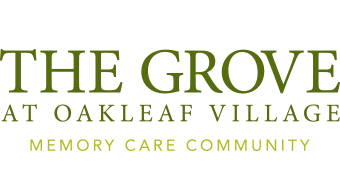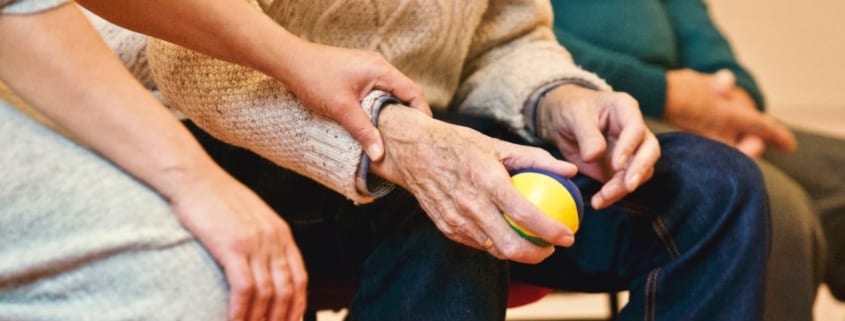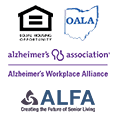3 Qualities to Look For in Dementia Caregivers
Finding the appropriate care for a family member with dementia isn’t a decision to take lightly.
While navigating treatment and care for your loved one with dementia, there are various factors to consider, such as which…
- Medication he or she should take.
- Doctor to work with to navigate medical care.
- Memory care community will be the right match.
- Dementia caregivers will provide compassionate and professional care.
When it comes to the last point, there are various qualities to look for and analyze when selecting caregivers for your loved one.
Whether you’re exploring various memory care communities or planning to hire an at-home caregiver, read on to discover three important qualities to look for in dementia caregivers.
1. Dementia Caregivers with Dementia-Specific Training
Caring for a person with dementia requires knowledge beyond general caregiving practices.
Therefore, when it comes to finding the right dementia caregiver, it’s important to find people who have dementia-specific training.
For example, providers should have the training to…
- Understand an individual’s behavior.
- Know how to communicate with compassion.
- Provide the correct pain management.
Additionally, as the Alzheimer’s Association describes, “studies show staff trained specifically in dementia care are able to provide better quality of life for residents and have increased confidence, productivity and job satisfaction.”
At The Grove, our caregivers must complete 40 hours of onboarding in their first week, including the CARES® online dementia training and the essentiALZ® online certification exam.
In contrast, the average home health worker lacks specific training for dementia patients as we’ve explained in our post “5 Benefits of Making the Move to a Memory Care Community.”
2. Dementia Caregivers with a Personal Knowledge of Your Loved One
A one-size-fits-all method of care is not helpful for individuals with dementia because symptoms and needs can vary from person to person.
Therefore, it’s important for your loved one’s caregiver to possess personal knowledge of your loved one.
From there, the dementia caregiver can provide the feelings of safety and happiness your loved one needs to continue to live a rewarding life, despite his or her dementia diagnosis.
Unfortunately, certain memory care communities and at-home caregivers continue to use the one-size-fits-all approach in their caregiving practice.
On the other hand, at The Grove communities, our practitioners utilize a person-centered care methodology.
This means that our care providers learn about our residents’ unique stories and needs, and provide care that meets these needs and preferences.
Whether our caregivers play Mom’s favorite song for her birthday or invite Dad and his green thumb to help in the garden, we ensure that our residents’ personal stories are woven into the fabric of daily life in our community.
Our caregivers are passionate about surrounding our residents with these preferences and favorite things that will give them the quality of life they deserve.
3. A Group of Dementia Caregivers with 24/7 Availability for Care Needs
Dementia is an ever-present disease. In the same sense, your loved one should have access to dementia caregivers at all times.
Whether assisting with practices of personal hygiene in the morning, providing social engagement and accompaniment at mealtime, or preparing your loved one for sleep, caregivers are necessary at various points throughout the day and night.
At The Grove at Oakleaf Village, our caregivers are on-hand 24/7 to meet resident needs. This way, residents and their families can rest easy, knowing help is just a step away at all times.
See our caregivers in action–schedule a visit to The Grove Toledo in Toledo, Ohio, or make a plan to check out The Grove Columbus—opening soon in the north Columbus area.







